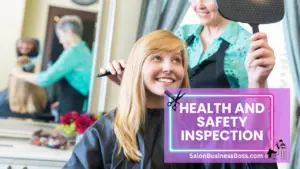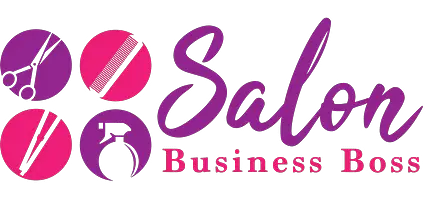Opening a hair salon is an exciting venture that allows you to express your creativity while providing essential services to the community. However, before you can embark on this journey, it’s crucial to navigate the intricate web of permits, licenses, and regulations that govern the salon industry.
Requirements to open a hair salon include obtaining a business license, salon establishment license, and cosmetology licenses. Adequate building permits, health and safety inspections, and signage permits are crucial. A comprehensive business plan, proper location, and insurance coverage are essential. Quality equipment, sanitation protocols, and skilled staffing are pivotal for success.
Permits and Licenses
1. Business License
To legally operate a hair salon, securing a business license is paramount. This essential permit is obtained from your local government and acts as a legal acknowledgment of your salon’s presence in the community. It authorizes you to conduct business activities within the designated area, ensuring your compliance with local regulations and zoning ordinances. The business license not only legitimizes your operations but also serves as a crucial step in establishing credibility among clients and stakeholders. By acquiring this license, you demonstrate your commitment to adhering to legal and regulatory frameworks, fostering trust within the local community and potential customers.
2. Salon Establishment License:
Beyond the general business license, the beauty industry often necessitates a specialized salon establishment license. This license holds immense importance as it addresses the unique requirements of a salon’s physical establishment. It serves as an assurance to both clients and authorities that your salon premises adhere to stringent health and safety standards. This license underscores your dedication to maintaining a hygienic and secure environment, fostering client well-being and satisfaction. Obtaining a salon establishment license signifies your commitment to professionalism and best practices within the beauty sector, building a reputation that resonates positively with clients seeking high-quality services in a safe and welcoming setting.
3. Cosmetology License
For those intending to offer a range of cosmetology services, including hair styling, coloring, and various beauty treatments, obtaining a cosmetology license is paramount. This credential is a testament to your expertise in the field and your adherence to the industry’s professional standards. It is not just a legal requirement but a mark of excellence that instills confidence in your clients. A cosmetology license is evidence of your dedication to maintaining a high level of skill and knowledge, assuring your clientele that they are in capable hands. By ensuring that both you and your staff possess valid cosmetology licenses, you establish a foundation of trust, positioning your salon as a destination for top-notch beauty services provided by qualified professionals.
4. Building and Construction Permits
Before embarking on any salon renovations or setup, it’s imperative to engage with your local building department to acquire the requisite building and construction permits. These permits play a crucial role in ensuring that your salon space conforms to established building codes and safety standards. By obtaining these permits, you affirm your commitment to creating a physical environment that prioritizes the safety and well-being of both your clients and staff. Compliance with these regulations not only safeguards the structural integrity of your salon but also fosters a sense of trust among visitors, reassuring them that your establishment operates within a secure and lawful framework.
5. Health and Safety Inspection

Maintaining a high standard of hygiene and sanitation is paramount in the salon industry. Health and safety inspections are routine procedures that evaluate the adherence of your salon to these essential standards. These inspections encompass a thorough assessment of equipment sterilization protocols, overall cleanliness, and strict compliance with infection prevention guidelines. Undertaking regular health and safety inspections is not only a legal obligation but also a testament to your unwavering dedication to providing a safe and hygienic environment for your clients and employees alike. Through these inspections, you demonstrate your commitment to maintaining the highest level of professionalism and well-being within your salon space.
Read more about: How Much Does a Hair Salon Business License Cost and Where Do I Get One?
6. Signage Permits
The visual representation of your salon through signage is a critical aspect of attracting clients and establishing your brand identity. However, it’s important to note that signage permits may be required, depending on the size, location, and content of your signage. These permits are distinct from other licenses and ensure that your signage aligns with local aesthetic and regulatory standards. Acquiring signage permits not only demonstrates your adherence to local guidelines but also contributes to a harmonious visual landscape within the community. By obtaining these permits, you ensure that your salon’s signage not only attracts attention but does so in a manner that respects the visual fabric of the area in which your salon operates.
Business Requirements
1. Business Plan
Crafting a robust business plan is a cornerstone of salon success. This strategic blueprint is more than just a document; it’s a roadmap to guide your salon’s journey to prosperity. Your business plan encapsulates your salon’s vision, defining its unique identity and character. It delves into the specifics of your target market, services offered, and pricing strategy, providing a clear understanding of your market positioning. Financial projections outlined in the plan offer insights into potential revenue streams and growth trajectories, making it an invaluable tool for attracting potential investors or securing loans. A well-structured business plan is akin to a compass, steering your salon’s operations, growth, and decision-making in the right direction.
2. Location and Zoning
Choosing the optimal location for your salon is paramount to its success. The ideal locale should encompass factors like foot traffic, accessibility, and proximity to your intended customer base. This strategic decision can significantly impact your salon’s visibility and customer flow. Equally crucial is ensuring that the chosen location aligns with zoning regulations that permit salon establishments. Zoning regulations dictate the types of businesses allowed in specific areas, and adhering to them ensures that your salon operates legally. By carefully selecting a location that complements your salon’s identity and complying with zoning requirements, you set the foundation for a thriving business rooted in the heart of your desired community.
3. Insurance
Comprehensive insurance coverage is a safety net that every salon owner should embrace. The dynamic environment of a salon carries inherent risks, making insurance a vital asset. General liability insurance shields your business from legal claims arising from accidents or injuries on your premises. Property insurance safeguards your physical assets against unexpected events such as fires or natural disasters. Importantly, workers’ compensation insurance protects your employees in case of work-related injuries. This coverage not only demonstrates your commitment to your team’s well-being but also safeguards your business from potential legal and financial challenges. By securing appropriate insurance tailored to the nuances of the salon industry, you ensure that your salon’s future remains secure, allowing you to focus on delivering exceptional services to your valued clients.
4. Staffing Requirements
The caliber of your staff profoundly influences your salon’s reputation and success. It’s imperative to assemble a team of qualified professionals who not only possess the necessary cosmetology licenses but also exude a passion for their craft. These licenses validate their expertise and adherence to industry standards, instilling confidence in your clients. Equally important is their familiarity with industry best practices, ensuring that your salon consistently delivers top-notch services. A team well-versed in the latest trends, techniques, and customer service protocols not only guarantees client satisfaction but also reinforces your salon’s reputation for excellence. Careful staffing, rooted in expertise and dedication, forms the bedrock of a salon that garners trust, repeat business, and positive word-of-mouth endorsements.
5. Marketing and Branding
In the modern business landscape, effective marketing and branding are pivotal to a salon’s success. Developing a strong brand identity sets the stage for how your salon is perceived by the public. It’s an amalgamation of your salon’s ethos, services, and unique selling points. Crafting a compelling brand identity forms the foundation upon which your marketing strategy is built. An integral part of this strategy is the creation of a professional website that showcases your services, team, and ambiance. Utilizing social media platforms enables you to connect with your target audience, sharing engaging content and building a loyal online community. Effective marketing campaigns further amplify your salon’s visibility, attracting new clients and retaining existing ones. By weaving together a seamless blend of branding and marketing efforts, you cultivate a salon that not only stands out but also thrives in a competitive landscape.
Operational Considerations
1. Equipment and Supplies

Investing in top-tier salon equipment and supplies is a cornerstone of creating a professional and inviting salon atmosphere. From styling chairs that offer comfort to hairdryers that deliver precision, each piece plays a pivotal role in delivering exceptional services. Equally crucial is ensuring that your equipment adheres to stringent safety standards, assuring the well-being of both clients and staff. High-quality mirrors, shampoo stations, and other essentials not only enhance the functionality of your salon but also contribute to a positive client experience. By meticulously curating your equipment and supplies, you create an environment that reflects your commitment to excellence and elevates the overall salon ambiance.
Read more about: Know Before You Go: Understanding Salon Set Up Cost
2. Product Selection
Choosing the right haircare products can make a world of difference in your salon’s offerings. Opt for reputable and safe products that align with industry standards. A diverse range of products catering to various hair types and customer preferences ensures that your clients receive tailored solutions. The products you select play a vital role in enhancing the effectiveness of your services and maintaining the health of your clients’ hair. By staying up-to-date with the latest advancements in haircare products, you underscore your dedication to providing top-quality solutions, building client trust, and solidifying your salon’s reputation as a go-to destination for haircare needs.
3. Sanitation Practices
Maintaining impeccable sanitation practices is non-negotiable in the salon industry. Implementing stringent hygiene measures is paramount for ensuring a clean and hygienic environment. Regularly sterilizing tools, sanitizing workstations, and adhering to proper disposal protocols are imperative steps in safeguarding both client and employee health. Prioritizing sanitation showcases your unwavering commitment to providing a safe and comfortable space for all visitors. This dedication to cleanliness not only enhances your salon’s reputation but also fosters client trust, making them feel valued and well-cared-for during each visit.
4. Appointment and Record Keeping
Efficient appointment scheduling and meticulous record keeping are essential for maintaining seamless operations. Implementing a streamlined appointment system ensures optimal client experience and minimizes scheduling conflicts. Additionally, maintaining detailed records of client information, services rendered, and any allergies or sensitivities aids in tailoring services to individual needs. This level of personalized care reflects your dedication to client well-being and satisfaction. Keeping comprehensive records not only fosters a strong client-provider relationship but also streamlines communication, allowing you to consistently deliver exceptional service and build lasting client connections.
Conclusion
Opening a hair salon is a rewarding venture that combines creativity with business acumen. However, navigating the regulatory requirements can be a complex process. By obtaining the necessary permits, licenses, and adhering to industry standards, you can establish a thriving salon that offers top-notch services while ensuring the health and safety of your clients and staff. Remember that ongoing education, adaptability, and exceptional customer service are key ingredients for long-term success in the salon industry.
Frequently Asked Questions

1. What kind of equipment is essential for a salon?
Invest in quality styling chairs, hairdryers, mirrors, and shampoo stations that meet safety standards.
2. How can I maintain a diverse product range?
Select reputable haircare products catering to various hair types and customer preferences.
3. Is appointment scheduling important for a salon?
Yes, an efficient scheduling system ensures smooth operations and optimal client experience.
To learn more on how to start you own salon checkout my startup documents here.
Please note that the contents of this blog are for informational and entertainment purposes only and should not be construed as legal advice. Any action taken based on the information provided in this blog is solely at your own risk. Additionally, all images used in this blog are generated under the CC0 license of Creative Commons, which means they are free to use for any purpose without attribution.

About the author. Entrepreneur and Salon Business Fan.
Hi! I am Shawn and I am a happy individual who happens to be an entrepreneur. I have owned several types of businesses in my life from a coffee shop to an import and export business to an online review business plus a few more and now I create online salon business resources for those interested in starting new ventures. It’s demanding work but I love it. I do it for those passionate about their business and their goals. That’s why when I meet a salon business owner, I see myself. I know how hard the struggle is to retain clients, find good employees and keep the business growing all while trying to stay competitive.
That’s why I created Salon Business Boss: I want to help salon business owners like you build a thriving business that brings you endless joy and supports your ideal lifestyle.

